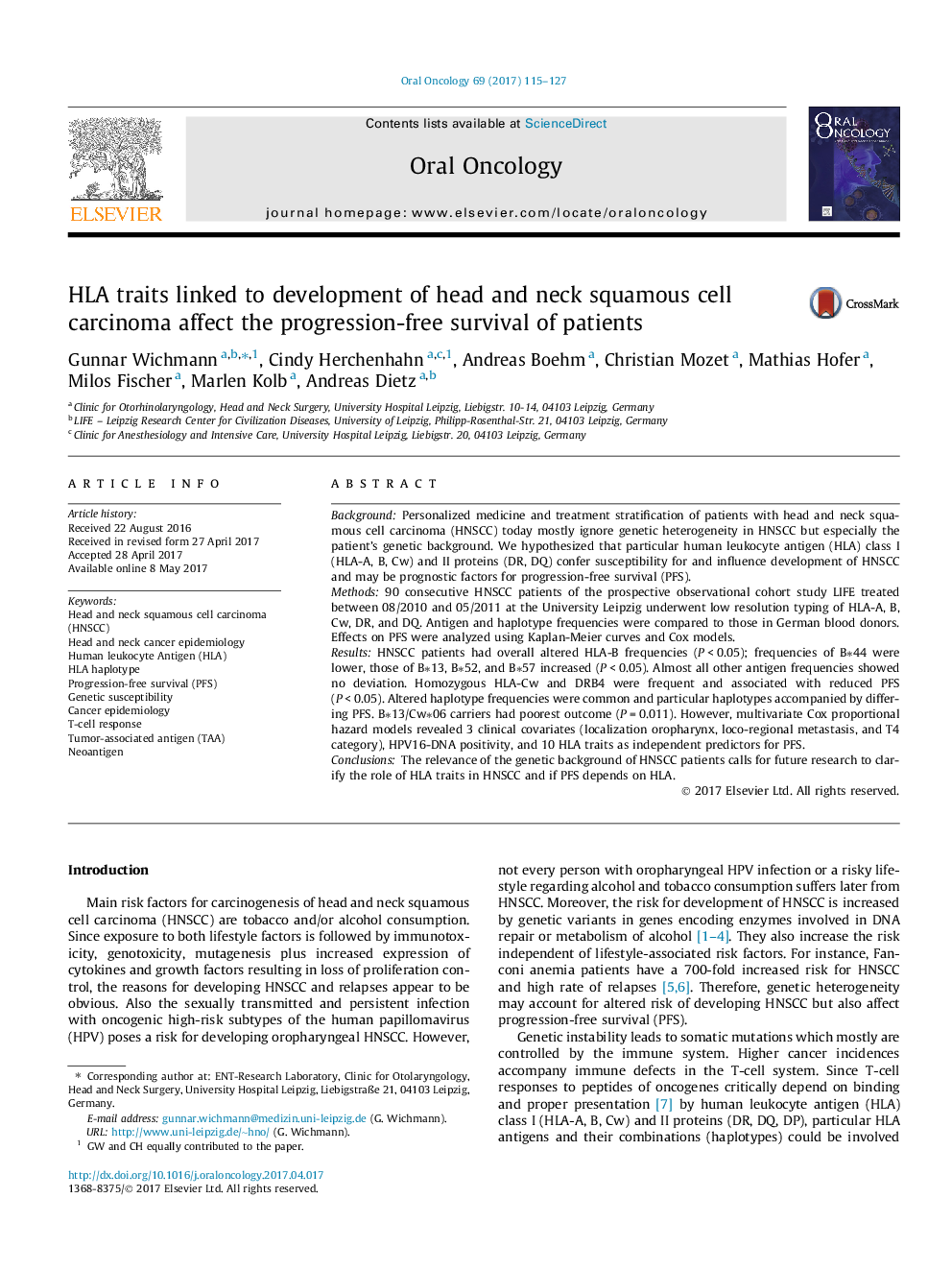| کد مقاله | کد نشریه | سال انتشار | مقاله انگلیسی | نسخه تمام متن |
|---|---|---|---|---|
| 5642566 | 1586241 | 2017 | 13 صفحه PDF | دانلود رایگان |

- Except HLA-B (p < 0.05) HNSCC patients have unaltered HLA allele frequencies.
- PFS of HNSCC patients with either homozygous HLA-C or DRB4 is decreased (p < 0.05).
- Multivariate analyses identify 10 HLA traits as independent risk factors for PFS.
- Altered HLA-B frequencies and uncommon HLA-B haplotypes are linked to reduced PFS.
- Considering HLA in HNSCC patient stratification for clinical trials is recommended.
BackgroundPersonalized medicine and treatment stratification of patients with head and neck squamous cell carcinoma (HNSCC) today mostly ignore genetic heterogeneity in HNSCC but especially the patient's genetic background. We hypothesized that particular human leukocyte antigen (HLA) class I (HLA-A, B, Cw) and II proteins (DR, DQ) confer susceptibility for and influence development of HNSCC and may be prognostic factors for progression-free survival (PFS).Methods90 consecutive HNSCC patients of the prospective observational cohort study LIFE treated between 08/2010 and 05/2011 at the University Leipzig underwent low resolution typing of HLA-A, B, Cw, DR, and DQ. Antigen and haplotype frequencies were compared to those in German blood donors. Effects on PFS were analyzed using Kaplan-Meier curves and Cox models.ResultsHNSCC patients had overall altered HLA-B frequencies (PÂ <Â 0.05); frequencies of Bâ44 were lower, those of Bâ13, Bâ52, and Bâ57 increased (PÂ <Â 0.05). Almost all other antigen frequencies showed no deviation. Homozygous HLA-Cw and DRB4 were frequent and associated with reduced PFS (PÂ <Â 0.05). Altered haplotype frequencies were common and particular haplotypes accompanied by differing PFS. Bâ13/Cwâ06 carriers had poorest outcome (PÂ =Â 0.011). However, multivariate Cox proportional hazard models revealed 3 clinical covariates (localization oropharynx, loco-regional metastasis, and T4 category), HPV16-DNA positivity, and 10 HLA traits as independent predictors for PFS.ConclusionsThe relevance of the genetic background of HNSCC patients calls for future research to clarify the role of HLA traits in HNSCC and if PFS depends on HLA.
Journal: Oral Oncology - Volume 69, June 2017, Pages 115-127